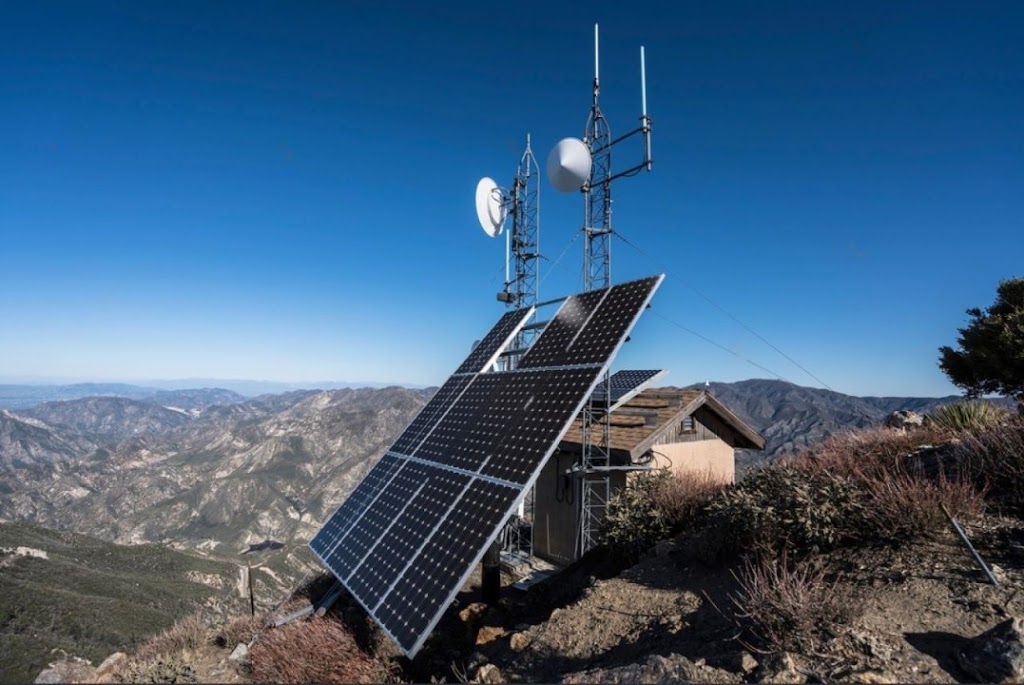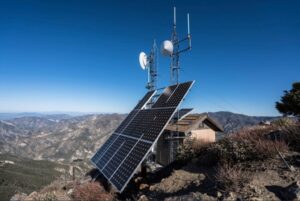
The telecom industry is at a pivotal moment, with rising energy demands and operational costs pushing companies to explore sustainable solutions. Solar energy has emerged as the top choice for the telecom sector, with an impressive 1,250 MW of solar projects currently in the pipeline. This shift towards renewable energy, particularly solar power, signals a transformative future for telecom operators, offering both environmental benefits and significant cost reductions. For state-owned Bharat Sanchar Nigam Limited (BSNL), adopting this low-cost power solution could be the key to reversing its financial struggles, especially as competitors hike tariffs and boost profits while BSNL focuses solely on cost-cutting.
In this blog, we’ll dive into the future of renewable energy in the telecom sector, explore how solar power can slash operating costs, and explain why BSNL must act swiftly to leverage this opportunity for higher margins, including recent developments on BSNL’s potential use of solar energy to power its Base Transceiver Stations (BTS) and towers.
Why Renewable Energy is the Future for Telecom
The telecom sector is energy-intensive, relying heavily on power to operate cell towers, data centers, and network infrastructure. Traditionally, diesel generators have been the go-to solution for backup power, especially in remote areas with unreliable grid connectivity. However, with diesel prices soaring and environmental regulations tightening, renewable energy—particularly solar—has become a game-changer.
Solar energy is gaining traction, with 1,250 MW of capacity in development for telecom applications. This isn’t just a trend; it’s a strategic shift driven by several factors:
- Sustainability Goals: Telecom companies are under pressure to reduce their carbon footprint. Solar power offers a clean, renewable alternative to fossil fuels, aligning with global sustainability targets.
- Energy Reliability: Solar panels, paired with battery storage, provide a consistent power supply, reducing dependence on erratic grids or costly diesel.
- Scalability: With modular solar installations, telecom operators can scale energy solutions based on demand, making it ideal for both urban hubs and rural towers.
The future of renewable energy in telecom looks bright, with solar leading the charge. As technology advances, we can expect innovations like hybrid solar-wind systems and improved energy storage to further enhance efficiency and reliability.
How Solar Power Reduces Operating Costs
Operating costs are a major concern for telecom companies, with energy expenses often accounting for 20-30% of total expenditures. Solar energy can dramatically lower these costs, offering a compelling case for adoption. Here’s how:
- Lower Fuel Costs: Replacing diesel generators with solar power eliminates fuel expenses, which have risen sharply in recent years. For instance, a single telecom tower running on diesel can cost thousands of rupees monthly, while solar installations have minimal ongoing fuel costs after the initial investment.
- Reduced Maintenance: Diesel generators require regular servicing, repairs, and fuel logistics, adding to operational overheads. Solar systems, on the other hand, are low-maintenance, with panels lasting 25+ years and minimal upkeep.
- Stable Energy Pricing: Unlike fluctuating diesel prices, solar energy offers predictable costs. Once installed, the power is essentially free, shielding telecom operators from market volatility.
- Government Incentives: In India, schemes like the PM Surya Ghar: Muft Bijli Yojana and subsidies for renewable energy projects can offset upfront installation costs, making solar even more affordable.
By transitioning to solar, telecom companies can cut energy bills by up to 50-70%. This cost-saving potential is already being realized by private operators like Reliance Jio and Airtel, who are integrating renewables into their networks and reaping the financial rewards.
BSNL’s Opportunity: Solar as a Path to Profitability
BSNL, once a dominant player in India’s telecom market, has struggled to keep pace with private competitors. While Jio and Airtel have hiked tariffs and boosted margins, BSNL has relied heavily on cost-cutting measures to stay afloat. However, this approach has its limits slashing expenses alone won’t drive growth or profitability. Embracing solar energy offers a blueprint for BSNL to turn things around.
Here’s why BSNL should prioritize this low-cost power solution:
- Competitive Edge: Private operators are already leveraging renewables to lower costs and fund tariff hikes, leaving BSNL at a disadvantage. Adopting solar could level the playing field, allowing BSNL to maintain affordable tariffs while improving margins.
- Rural Reach: BSNL has a vast network of towers in rural and remote areas, where grid power is unreliable. Solar installations, paired with battery backups, are ideal for these locations, reducing diesel dependency and operational costs.
- Financial Recovery: The initial investment in solar can be recouped within 3-5 years through energy savings. For BSNL, this could free up capital for network upgrades and customer acquisition.
- Government Support: As a public-sector entity, BSNL can tap into government-backed renewable energy programs, securing funding and technical assistance to fast-track solar adoption.
Recent news highlights BSNL’s strides in network expansion, with over 75,000 4G towers now active as of March 2025, aiming for 1 lakh by June 2025. While there’s no confirmed report of BSNL currently using solar energy to power its BTS towers, discussions around sustainable energy solutions have surfaced. For instance, posts on X suggest that the government could operate BSNL towers with solar energy, increasing profitability by reducing fuel costs and attracting more customers. Although no official announcement has confirmed BSNL’s adoption of solar power for its BTS towers as of April 07, 2025, the telecom operator’s focus on cost efficiency and government-backed sustainability initiatives make it a likely candidate for such a transition in the near future.
The 1,250 MW solar pipeline for telecom is a wake-up call . BSNL must act now or risk falling further behind. Competitors are already profiting from higher tariffs, while BSNL’s cost-cutting focus limits its growth potential. Solar power offers a sustainable, low-cost alternative that could boost profitability without alienating customers.
The Road Ahead: Challenges and Solutions
While the future of renewable energy in telecom is promising, challenges remain. High upfront costs, land availability for solar installations, and integration with existing infrastructure can pose hurdles. However, these can be addressed:
- Financing Options: BSNL can explore public-private partnerships or green loans to fund solar projects, minimizing financial strain.
- Rooftop Solar: For urban towers, rooftop solar eliminates the need for additional land, making it a practical solution.
- Hybrid Systems: Combining solar with existing diesel setups can ease the transition, ensuring reliability during cloudy periods.
With the right strategy, these challenges become opportunities. The telecom sector’s shift to renewables is inevitable, and early adopters like BSNL could gain a significant advantage.
Conclusion: Solar-Powered Telecom is Here to Stay
Solar energy is the future of the telecom industry. With 1,250 MW in the pipeline, the sector is poised for a renewable revolution that promises lower operating costs, enhanced sustainability, and greater energy independence. For BSNL, this is more than just a trend it’s a lifeline. By embracing solar power, BSNL can reduce expenses, improve margins, and compete with private operators who are already reaping the benefits of tariff hikes. While no definitive news confirms BSNL’s use of solar energy for BTS towers yet, the potential is clear, and the government’s push for renewables could soon see BSNL’s towers powered by the sun.
The time for cost-cutting alone is over. BSNL must think bigger, opting for this low-cost, high-impact solution to secure its place in India’s telecom landscape. The future is solar-powered will BSNL seize it?




